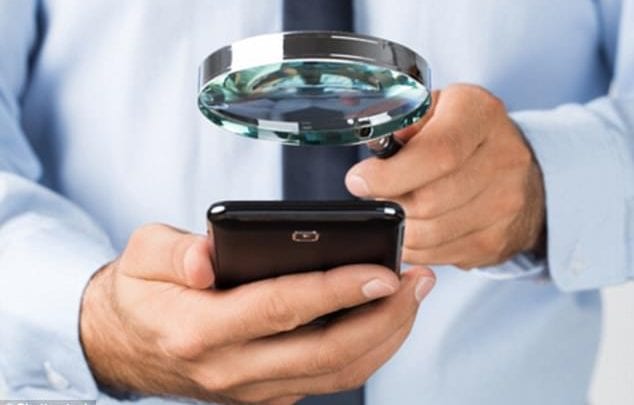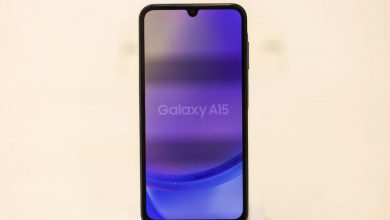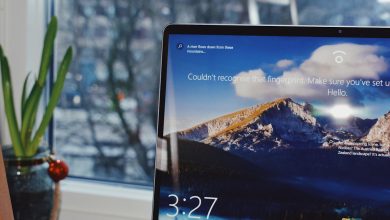
Your smartphone is not listening to you – but does secretly watch everything you do.
هاتفك لا يستمع إليك، ولكنه يشاهد كل ما تفعله
Is your phone WATCHING you? Apps aren’t secretly listening to your private conversations but some will record video of everything you do
Researchers have uncovered that smartphone applications record video footage and screenshots of your activity and then send the recordings to third parties.
In some cases, the secretive filming captures personal information of users, including their zip or postcode.
Scientists made the find while investigating the long-held rumour that apps are capable of hijacking microphones in smart devices to secretly record audio to help them better target advertisements displayed online.
Smartphone users have for years complained of the creepy feeling their gadget is listening to their every word – even while stowed away in their pocket – but the new study found no evidence of the practice ever taking place.
Scientists at Northeastern University in Boston ran an experiment that tested 17,260 of the most popular Android apps, including many owned by Facebook.
Of those investigated, more than half had permission to access users’ camera and microphone, allowing them to activate the features any time the app was open.
Researchers used an automated programme to analyse photo, video and audio files sent to and from the apps – which were loaded onto ten Android devices – but found no evidence that any were secretly recording using the built-in microphone.
The latest findings dispel the enduring rumour that apps like Facebook periodically record conversations and send keywords to third parties to help them target adverts.
Paranoid users have complained that after chatting about niche topics or holiday destinations, relevant ads will often appear across their apps or online browsing.
A closer look at the results from the stud shows that while apps were not listening, some do regularly record footage and screenshots of what users are doing.
The software then forwards this information to third-party domains for analysis.
Researchers caught one app – the US Deliveroo-style service GoPuff – recording the screens of users and sending the footage to mobile analytics firm Appsee.
The app, which has been downloaded more than 100,000 times from the Google Play Store, took footage of a screen that asked for a customers to list their zip code.
GoPuff’s privacy policy did not notify users their screens could be recorded while using the smartphone app.
For years smartphone users have complained of the creepy feeling their gadget is recording their every word, even when it is sat in their pocket.
Many share a similar story: They were chatting about a niche product or holiday destination with friends, and soon afterwards an advertisement on the same theme appears in their social media apps.
According to Dr Peter Henway, a senior security consultant for cybersecurity firm Asterisk, these oddly pertinent ads aren’t merely a coincidence and your phone regularly listens to what you say.
It’s not known exactly what triggers the technology, but Dr Henway claims the technique is completely legal and is even covered in the terms of your mobile apps’ user agreements.
Most modern smartphones are loaded with AI assistants, which are triggered by spoken commands, like ‘Hey Siri’ or ‘OK, Google’.
These smartphone models are constantly listening out for the designated wake word or phrase, with everything else discarded.
However, keywords and phrases picked-up by the gadget can be accessed by third-party apps, like Instagram and Twitter, when the right permissions are enabled, Dr Henway told Vice.
This means when you chat about needing new jeans, or plans for a holiday, apps can plaster your timeline with adverts for clothes and deals on flights.
Facebook categorically denies it uses smartphone microphones to gather information for the purposes of targeted advertising.
The company has previously said that the eerie feeling that your phone is listening to you is merely an example of heightened perception, or the phenomenon whereby people are more likely to notice things they’ve recently talked about.
A number of other companies, including WhatsApp, also deny bugging private conversations, describing any anecdotal evidence as pure coincidence.
After the researchers got in contact, the company updated its terms of service to say that ‘personally identifiable information’ may be collected.
‘As an added precaution, we also pulled Appsee SDK from the latest Android and iOS builds,’ a spokesperson told Gizmodo.
Appsee’s CEO Zahi Boussiba said the company’s terms ‘forbid customers from tracking any personal data with Appsee’.
‘In this case it appears that Appsee’s technology was misused by the customer and that our Terms of Service were violated,’ he said Boussiba.
‘Once this issue was brought to our attention we’ve immediately disabled tracking capabilities for the mentioned app and purged all recordings data from our servers.’
The researchers will present their findings next month at the Privacy Enhancing Technology Symposium Conference in Barcelona.
Our activity on websites and apps and demographic information is gathered using increasingly sophisticated technology to bring us personalised adverts.
People’s electronic markers – known as ‘cookies’ – from websites they visit are gathered and passed to advertisers so they can target us with products relevant to our tastes and interests.
This is why you can search John Lewis for a mattress only to spot relevant bedding adverts cropping up in your Facebook feed.
The practice is not illegal, though under the 1998 Data Protection Act a person has to actively consent to their data being collected and the purpose for which it’s used.
A number of people report seeing adverts for niche products or holiday destinations on their phone shortly after discussing them with a friend.
This has led some to conclude that their phone is listening to them and targeting ads based on their conversations.
أجرت مجموعة من أكاديميي علوم الحاسب من جامعة نورث إيسترن تجربة لاختبار أكثر من 17 ألف تطبيق من أشهر تطبيقات نظام التشغيل أندرويد لتحديد ما إذا كان أي تطبيق منهم قد سجل الصوت من خلال ميكروفون الهاتف، ووفقًا للباحثين فإن نظرية المؤامرة التي بدأ الكثير من الناس الإيمان بها والمتعلقة بأن الهاتف الخاص بك يستمع إلى كل ما تقوله ليست صحيحة على الإطلاق، إذ بعد دراسة استمرت لمدة عام، لم يعثروا على أي دليل على أن التطبيقات تستمع إلى المستخدم، ولكنهم اكتشوفوا أنهم قد يشاهدوا كل ما تفعله.
وازداد مؤخرًا عدد الأشخاص المقتنعين بنظرية المؤامرة، وأن هواتفهم الذكية تستمع إلى محادثاتهم لاستهدافهم بالإعلانات، وقد ساعدت براءة الاختراع الأخيرة التي قدمتها منصة التواصل الإجتماعي فيسبوك على تغذية هذا الاعتقاد، حيث طورت المنصة تقنية من أجل تفعيل ميكروفون جهاز المستخدم للاستماع إليه أثناء مشاهدته للإعلانات من خلال إشارات صوتية سرية غير مسموعة بالنسبة للأذن البشرية ضمن الإعلانات التفلزيونية تؤدي إلى قيام الجهاز الذكي بتسجيل الأصوات المحيطة أثناء ظهور الإعلان، ثم يتم إرسال الصوت إلى فيسبوك، حتى تتمكن من سماع رد فعلك على الإعلان.
وتضمنت الدراسة بعض التطبيقات التابعة لمنصة فيسبوك، وأكثر من 8 آلاف تطبيق آخر قادر على إرسال المعلومات إلى منصة التواصل الإجتماعي، وحصل أكثر من نصف التطبيقات التي تم اختبارها على أذونات للوصول إلى كاميرا الجهاز والميكروفون، مما يسمح لها بتسجيل أية محادثات قام بها الشخص أثناء فتح التطبيق، وتم تحليل حركة مرور البيانات التي تم إنشاؤها باستخدام برنامج تلقائي كطريقة للتفاعل مع التطبيقات على الأجهزة المستخدمة، وقرر الباحثون أنه لم يتم إرسال أي ملفات صوتية إلى أي نطاقات تابعة لجهة خارجية.
وسارع الباحثون إلى الحديث عن قيود الدراسة، ولم يقدموا أبدًا ادعاء قاطع بأن تطبيقاتك لا تستمع إليك مطلقًا بشكل سري، بحيث قد تكون النتائج مختلفة عما قد يواجهه الإنسان تبعًا لاستخدام نظام آلي لاختبار التطبيقات، كما تعذر أيضًا على النظام التلقائي تسجيل الدخول إلى هذه التطبيقات ويحتمل أنه لم يتمكن من الوصول إلى ملفات الصوت الذي تمت معالجتها محليًا على الجهاز.
ولاحظ الباحثون شيئًا آخر غير تقليدي تمثل بالتقاط عدة تطبيقات تسجيلات فيديو ولقطات شاشة لما كان يفعله الأشخاص، وتم إرسال هذه اللقطات إلى نطاقات جهة خارجية، واحد من هذه التطبيقات هو GoPuff، وهو خدمة مشابهة لخدمة PostMates، ولكنه يستخدم في المقام الأول لتوصيل الطعام والوجبات الخفيفة في وقت متأخر من الليل، حيث قام التطبيق بتسجيل مقطع فيديو لشاشة التطبيق وإرساله إلى شركة تحليل الأجهزة المحمول التابعة لجهات خارجية Appsee.
وتشكل المعلومات الحساسة مثل أرقام بطاقات الائتمان والعناوين، البيانات الرئيسية التي يقوم المستخدم بإدخالها بالنسبة لتطبيقات التوصل، وبشكل مشابه، قام تطبيق GoPuff بتسجيل وإرسال لقطة الشاشة عند طلب الرمز البريدي الخاص بالعميل، ولم تنبه سياسة خصوصية GoPuff المستخدمين بأنه من الممكن تسجيل شاشاتهم، وبعد أن قام الباحثون بالاتصال بشركة GoPuff للحديث عما وجدوه، قامت الشركة بتحديث سياسة الخصوصية الخاصة بها لتقول أنه يمكن جمع معلومات التعريف الشخصية الخاصة بالمستخدم.
;



